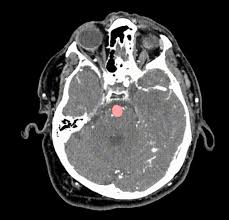
AI Ethics Bill Proposed by Global Tech Alliance A Global Step Toward Responsible Innovation
In a major development for the governance of artificial intelligence, the Global Tech Alliance (GTA) a consortium of leading tech companies, digital rights organizations, and AI research institutions has proposed an ambitious new bill aimed at setting global ethical standards for artificial intelligence systems. The proposed AI Ethics Bill, released earlier this month, seeks to move beyond voluntary commitments and establish enforceable guidelines that promote transparency, fairness, accountability, and human oversight in AI development and deployment. With AI tools increasingly shaping decisions in healthcare, finance, employment, and security, the GTA believes that the world can no longer afford to rely on fragmented national regulations or corporate goodwill alone.
The bill, which is still in its draft phase, outlines a framework for countries and corporations to adopt standardized practices that align with human rights and democratic values. It emphasizes four core principles non discrimination, explainability, safety, and responsibility. According to the Alliance, these principles are not merely aspirational they are intended to be actionable, measurable, and enforceable. For instance, any AI system deployed in sensitive sectors like criminal justice, education, or hiring would be required to pass a rigorous “Ethical Impact Assessment” before implementation. These assessments would be reviewed by independent oversight bodies and shared publicly, creating transparency and accountability at scale.
One of the most notable aspects of the bill is its stance on algorithmic transparency. The proposal requires companies to make key aspects of their AI systems understandable to the public and to users what data was used to train them, what assumptions they rely on, and how decisions are reached. In a world where AI is increasingly being used to filter job applications, assess creditworthiness, or even diagnose illness, such transparency is seen as essential. The bill also mandates that users be informed whenever they are interacting with or being evaluated by an AI system, a requirement aimed at safeguarding individual autonomy and informed consent.
In addition to transparency, the bill places a strong emphasis on bias prevention and fairness. To address systemic inequalities that often get baked into machine learning models, the draft legislation calls for proactive bias testing at every stage of AI development from data collection to deployment. Organizations found to be deploying discriminatory algorithms could face stiff penalties, including fines and public disclosure of their violations. The Global Tech Alliance also proposes a registry of high risk AI systems, which would operate much like the drug regulatory approvals in medicine, allowing authorities to track and evaluate technologies before and after they enter the market.
Beyond the technical safeguards, the AI Ethics Bill introduces mechanisms for individual redress and legal accountability. Under the proposed rules, individuals harmed by AI based decisions would have the right to demand explanations, appeal automated outcomes, and file legal complaints if necessary. Companies would also be required to maintain “human in the loop” protocols in critical decision making areas, ensuring that AI never functions as the final authority in life altering scenarios. This represents a key shift from the current landscape, where the burden of proof often lies with the user rather than the developer.
International cooperation is central to the GTA’s vision. Recognizing the borderless nature of AI technology, the bill proposes a Global AI Governance Council, composed of representatives from member nations, civil society groups, and technical experts. This body would coordinate the certification of AI systems, share research and best practices, and monitor cross border compliance. The idea is to prevent regulatory arbitrage, where companies exploit the gaps between national laws, and to establish a shared ethical baseline across different legal systems. The Council would also facilitate support for developing countries in building ethical AI capacity.
However, the bill is not without critics. Some industry leaders argue that the proposed regulations could stifle innovation and disproportionately burden smaller startups that lack the resources to conduct complex assessments. Others worry about enforcement while the idea of global cooperation is admirable, aligning vastly different legal frameworks and cultural contexts could prove challenging. The GTA acknowledges these concerns and has stated that the bill will undergo multiple rounds of public consultation, incorporating feedback from developers, policymakers, and user communities. The goal, they say, is to craft a flexible yet firm ethical architecture that can evolve alongside technology.
Despite the debate, the proposal has sparked significant international interest. Several countries, including Canada, Germany, and South Korea, have expressed early support for elements of the bill and indicated a willingness to explore pilot implementations. Major civil society organizations like Access Now and the Electronic Frontier Foundation have praised the bill for centering human rights and transparency. If adopted widely, the AI Ethics Bill could become the most comprehensive framework for AI governance to date offering a roadmap for responsible innovation that protects human dignity while fostering technological progress.
Related Post
Popular News
Subscribe To Our Newsletter
No spam, notifications only about new products, updates.















